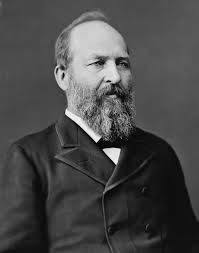
Introduction
James A. Garfield, the 20th President of the United States, holds a significant place in American history. Serving only six months from March to September of 1881, Garfield’s presidency was tragically cut short by assassination. However, his brief time in office and remarkable prior achievements make him an important figure to examine, especially in light of ongoing discussions around leadership and political reform in the United States.
A Glimpse into Garfield’s Life
Born on November 19, 1831, in Cuyahoga County, Ohio, Garfield grew up in a poor family that valued education. He worked various jobs to fund his studies, eventually attending Williams College in Massachusetts. Garfield’s impressive academic performance led him to become a teacher before entering politics, where he was elected to the Ohio State Senate and later to the U.S. House of Representatives. Throughout his political career, Garfield advocated for education and civil rights, particularly for African Americans.
The Presidency and Key Policies
Garfield won the highly contested Republican nomination in 1880 and ascended to the presidency amid political upheaval. His administration aimed to tackle the rampant corruption in government through civil service reform, a major issue at the time. Despite his short tenure, Garfield’s commitment to merit-based appointments laid the groundwork for future reforms.
His presidency also emphasized economic issues, as he sought to support the rapidly industrializing nation. His vision included a robust federal government that would effectively manage economic growth while safeguarding the interests of workers.
Assassination and Legacy
Tragedy struck on July 2, 1881, when Garfield was shot by Charles Guiteau, a disgruntled office seeker. Garfield’s painful struggle with his injuries lasted for 11 weeks until his death on September 19, 1881. His assassination not only shocked the nation but also highlighted the urgent need for civil service reform, leading to the passage of the Pendleton Act in 1883.
Conclusion
James Garfield’s life reflects the ideals of perseverance, education, and public service. Though his presidency was brief, his influence on civil service reform and the importance of integrity in government resonate to this day. As citizens navigate modern political landscapes, Garfield’s legacy serves as a reminder of the values that can drive positive change in society. Understanding Garfield’s contributions could inspire current and future leaders to prioritize accountability and ethical governance.



